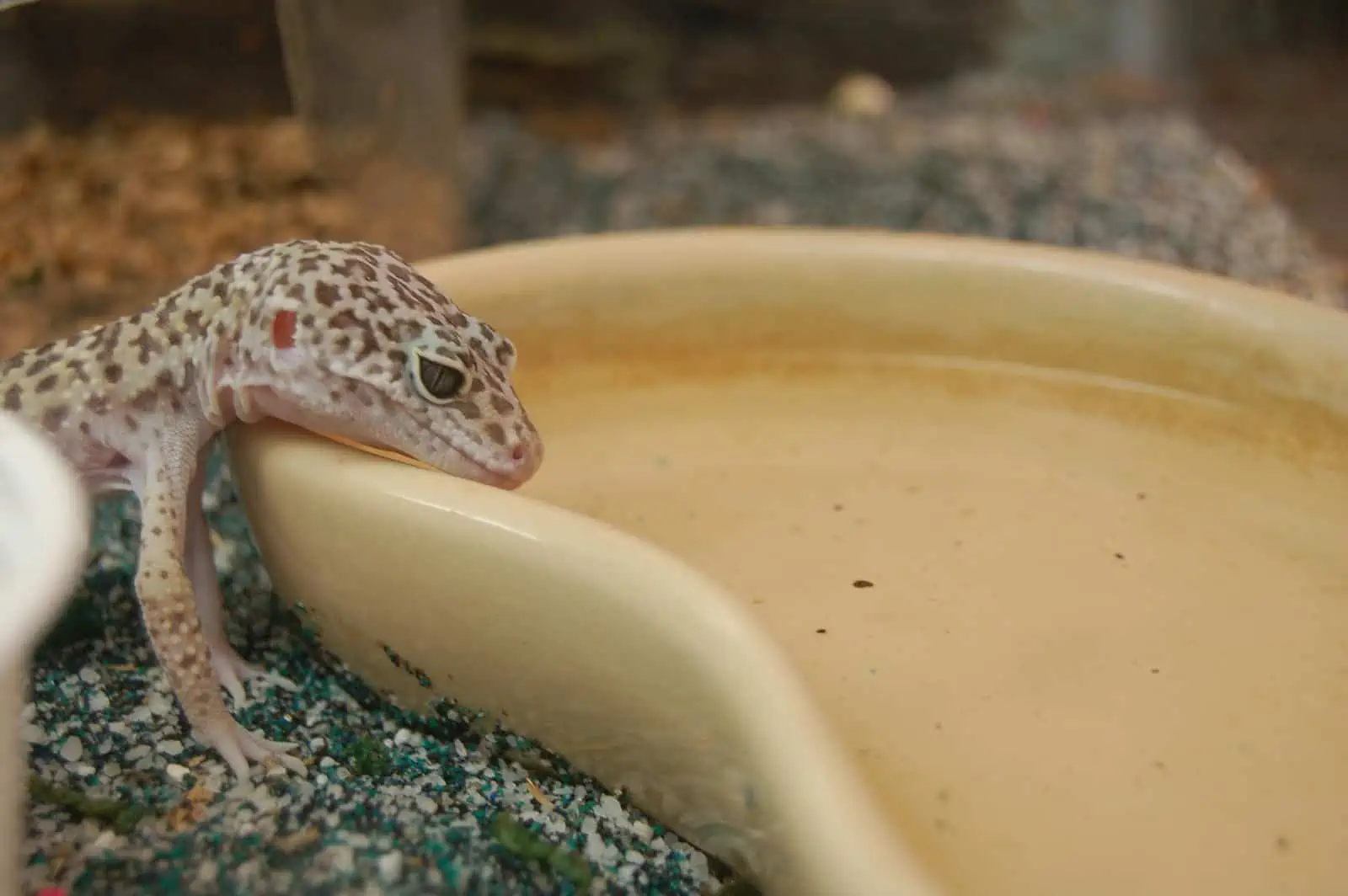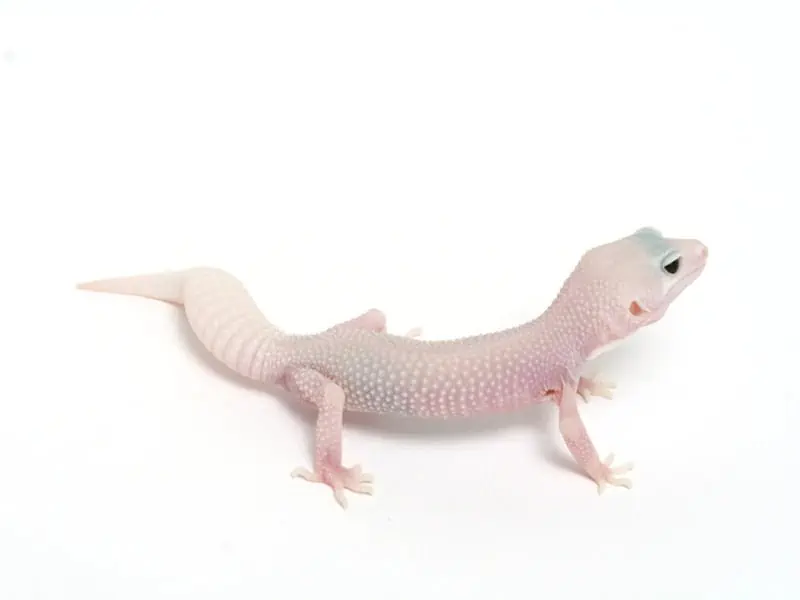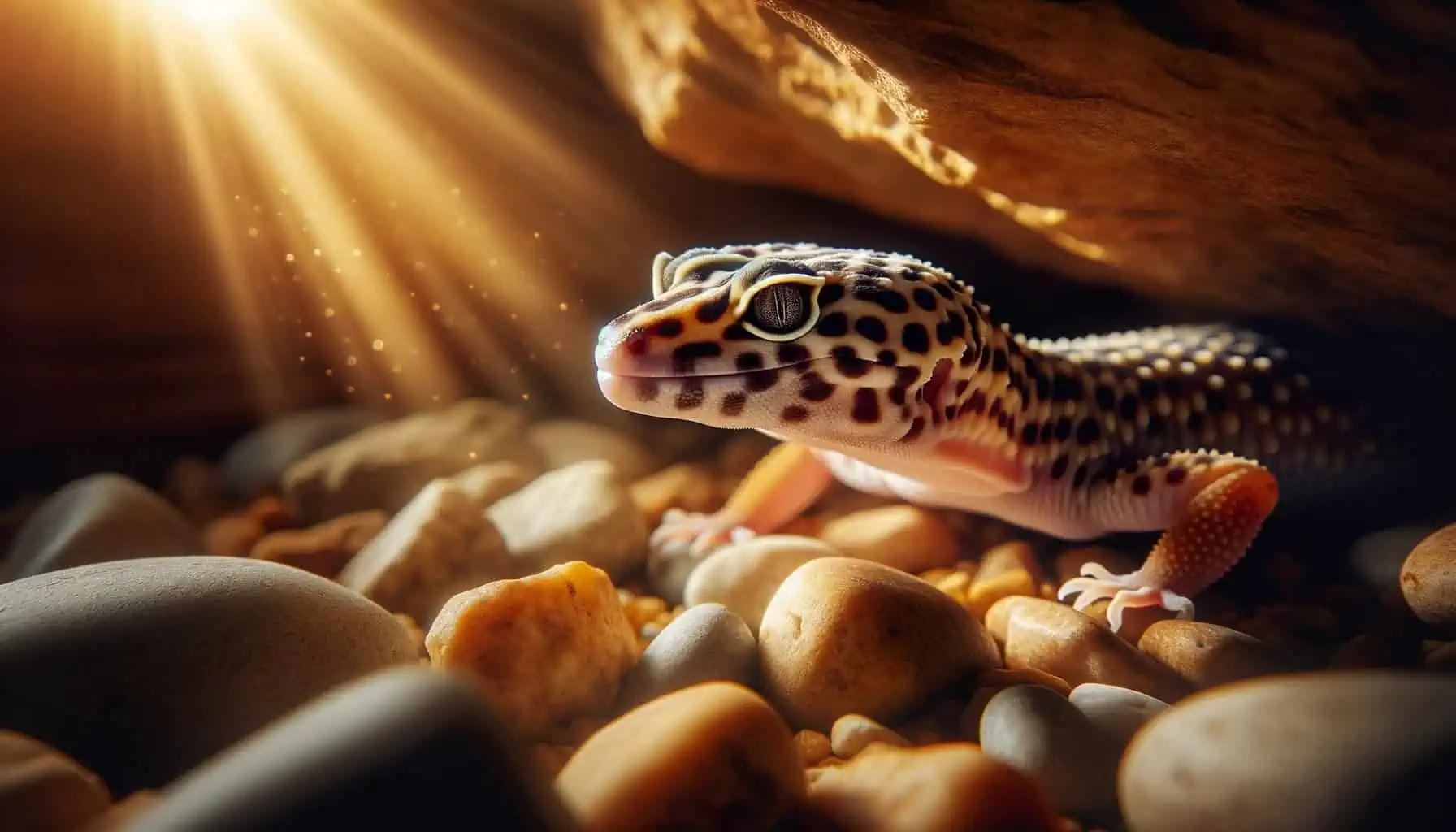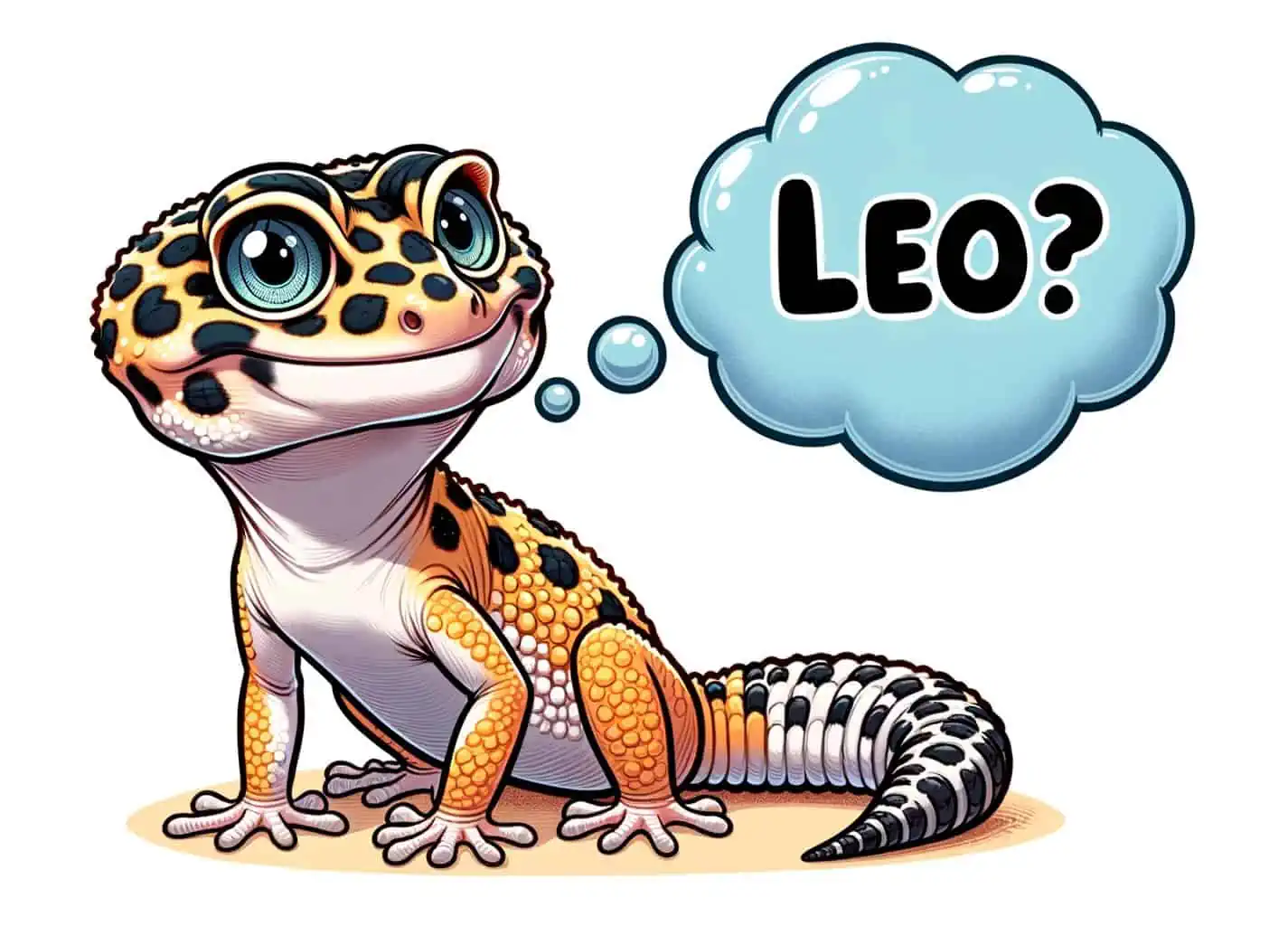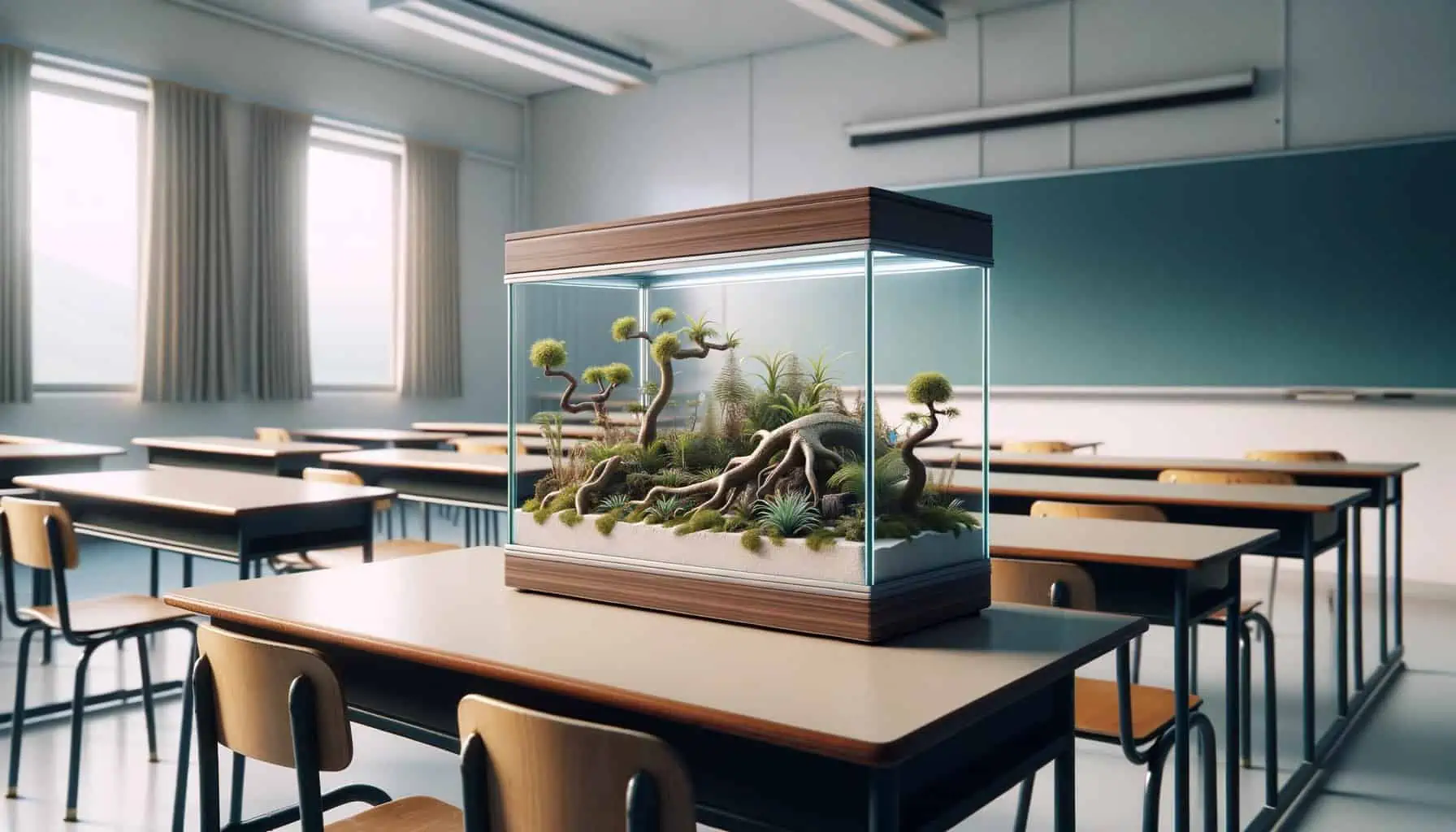Leopard Geckos can drink tap water, provided that the quality is good. Generally, it’s a good idea to avoid giving them tap water since you don’t know what chemicals were used. If you do, then I would suggest using a water treatment technique that guarantees the safety of your gecko.
While tap water can be a convenient option, it’s essential to consider its potential risks to your pet’s health. Many municipalities treat water with chemicals to eliminate bacteria and other contaminants. These chemicals, while safe for humans, might not be suitable for leopard geckos. Therefore, ensuring the safety of the water you provide to your gecko is paramount.
Can Leopard Geckos Drink Tap Water?
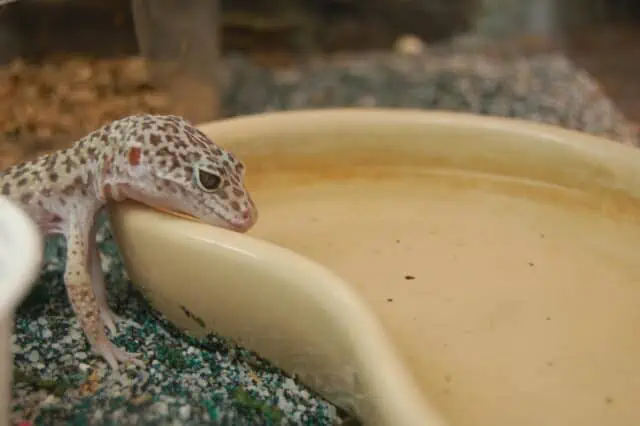
Yes, leopard geckos can drink tap water, but with a few considerations. Tap water often contains chemicals like chlorine, chloramines, and fluoride, which are added to make it safe for human consumption. However, these additives might not be suitable for leopard geckos. Prolonged exposure to these chemicals could potentially harm your gecko.
While some geckos might drink tap water without immediate adverse effects, it’s always better to be cautious. Ideally, if you choose to give your gecko tap water, it’s recommended to treat or filter it first. This ensures that any harmful chemicals are removed, and the water is safe for your reptilian friend.
Types of Water for Leopard Geckos – Pros & Cons
When it comes to hydrating your leopard gecko, not all water sources are created equal. Different types of water come with their own set of advantages and drawbacks. It’s crucial to understand these differences to make an informed decision about what’s best for your pet. From tap water to spring water, each option has specific characteristics that can affect your gecko’s health and well-being.
Tap Water
Tap water is the most readily available source of water for most households. While it’s convenient, giving tap water directly to leopard geckos without some form of treatment is not advisable. The primary reason for caution is the presence of chemicals like chlorine and chloramines, used in water treatment plants to make water safe for human consumption. These chemicals can be harmful to leopard geckos if ingested over time.
Pros:
- Easily accessible and doesn’t require special purchases.
- Can be made safe through various treatments, such as filtration.
Cons:
- Contains chemicals that can be harmful to geckos.
- Quality and chemical composition can vary depending on the source and region, making it inconsistent.
- Requires additional steps like filtration or treatment to make it safe for your pet.
Distilled Water
Distilled water is a type of purified water that has had nearly all of its minerals and salts removed through a distillation process. While it might seem like a clean option for leopard geckos, it’s not the most suitable choice for drinking. The main issue with distilled water is the lack of salt and minerals. These essential components play a vital role in osmotic regulation within the gecko’s body. Without them, a gecko’s internal balance can be disrupted, leading to potential health issues.
Pros:
- Free from contaminants and impurities found in other water sources.
- Suitable for uses other than drinking, such as misting or creating a humid environment.
Cons:
- Lacks essential salts and minerals required for proper osmotic regulation.
- Can lead to mineral deficiencies in geckos if used as a primary drinking source.
- Might not provide the natural taste that geckos prefer, given its pure nature.
Bottled Water
Bottled water is a popular choice for many reptile enthusiasts, and it’s easy to see why. Offering a combination of convenience, safety, and a thorough purification process, bottled water provides a reliable water source for leopard geckos. One of the primary benefits of using bottled water is its consistency. Unlike tap water, which can vary in composition depending on the region, bottled water maintains a stable profile.
Among the different types of bottled water, spring water stands out as a favored choice for reptiles. Naturally sourced, spring water sold in bottles does not contain harmful chemicals like chlorine or chloramines, making it a safe and consistent option for leopard geckos.
Pros:
- Offers convenience as it’s readily available in stores.
- Undergoes a rigorous purification process to ensure safety.
- Spring water variants do not contain harmful chemicals like chlorine or chloramines.
Cons:
- Can be more expensive than other water sources over time.
- Plastic bottles can contribute to environmental waste if not recycled.
Spring Water
Spring water is often regarded as the superior choice for leopard geckos. Sourced directly from natural springs, this water type boasts purity and mineral balance that’s hard to match. In the wild, geckos often have access to natural spring water, which is filtered by porous rocks, ensuring its cleanliness and safety for consumption. This natural filtration process mimics what many bottled spring water companies aim to achieve with their purification methods.
One of the significant benefits of spring water is its treatment process when bottled. To ensure the highest quality, it’s commonly treated with UV light and fine filters. This treatment ensures that any potential harmful microorganisms are eliminated, without the need for chemicals that might be detrimental to the geckos.
Pros:
- Mimics the natural water source geckos would access in the wild.
- Contains beneficial minerals essential for gecko health.
- Treated with UV light and filters to ensure purity without the use of chemicals.
Cons:
- Can be pricier than other water options.
- Availability might vary based on location.
Cleaned and Filtered Tap Water
For those seeking a middle ground between the convenience of tap water and the purity of bottled or spring water, cleaned and filtered tap water is an excellent option for leopard geckos. Preparing this type of water involves using a filtration system specifically designed to remove harmful chemicals, such as chlorine and fluoride, which are commonly found in municipal tap water.
Filtration systems come in various forms, each with its unique benefits. Activated carbon filters, for instance, are effective at removing chlorine and organic compounds. Reverse osmosis systems can eliminate a broader range of contaminants, including certain heavy metals. There are also pitcher-style filters, which are convenient and portable but might require more frequent replacements.
Pros:
- Utilizes the convenience of tap water while ensuring safety.
- Filtration systems remove harmful chemicals, making the water safe for gecko consumption.
- Cost-effective in the long run compared to constantly buying bottled water.
Cons:
- Initial investment in a filtration system can be high.
- Regular maintenance and filter replacements are necessary.
How Much Water Should Geckos Drink Per Day?
Ensuring proper hydration is vital for the health and well-being of leopard geckos. While these reptiles are native to arid regions and have evolved to thrive with minimal water intake, maintaining consistent access to clean water is essential. On average, leopard geckos do not have a specific daily water intake quota, as their consumption can vary based on factors like age, size, diet, and environmental conditions.
However, it’s crucial to emphasize that even though their water intake might be minimal, access to clean water daily is non-negotiable (even during the leopard gecko brumation period). A shallow dish of fresh water should be available in their enclosure at all times. This allows the gecko to drink whenever it feels the need, ensuring it stays hydrated.

